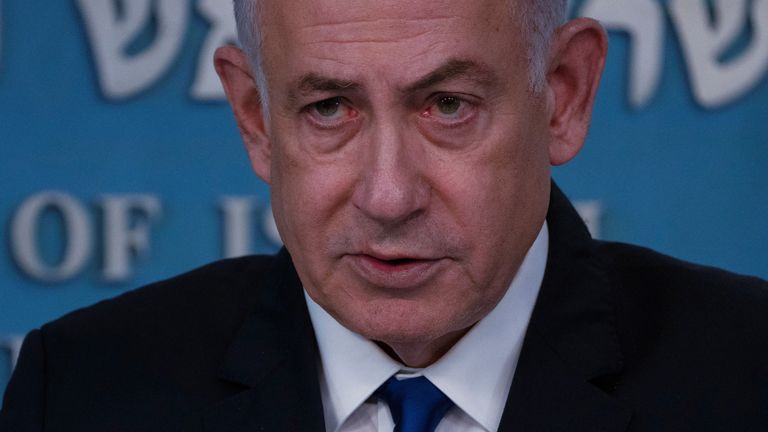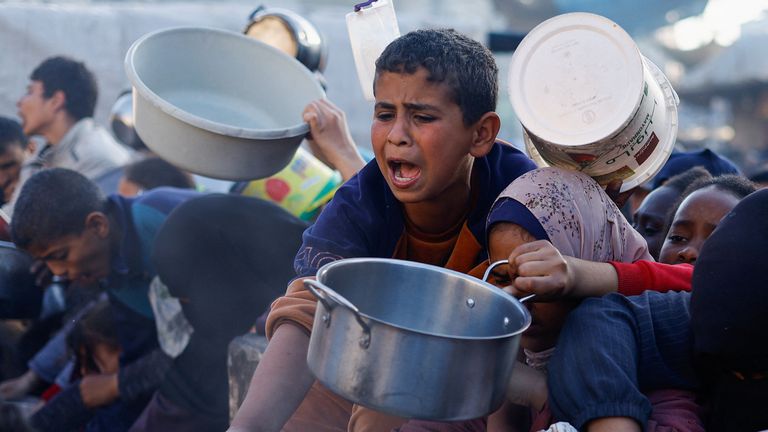A defiant Benjamin Netanyahu has vowed to press ahead with a long-expected assault on the southern Gaza city of Rafah, despite international criticism.
The Israeli prime minister was speaking on Sunday following a meeting with German Chancellor Olaf Scholz as he reiterated his promise to “eliminate the remaining terrorist battalions in Rafah”.
But he also said this promise “goes hand in hand with enabling the civilian population to leave”, although he gave no details as to where they could go.
“It’s not something we will do while keeping the population locked in place,” he said of the planned assault.
“In fact, we’ll do the very opposite – we will enable them to leave because our consideration for reducing and minimising civilian casualties has guided us and will continue to guide us in future.”
Israel’s military offensive in Gaza was launched in the wake of Hamas’s 7 October attack, when the militant group killed 1,200 people and abducted more than 250, some of whom are still hostages.
As the conflict approaches the end of its sixth month and with little progress in ceasefire talks, the number of Palestinians killed has passed 31,000, according to the Hamas-run Gaza health ministry, although those figures do not distinguish between civilians and combatants.
Israel’s offensive has driven most of Gaza’s 2.3 million people from their homes, more than one million of them sheltering in Rafah.
A quarter of the population is starving, according to the UN, with aid organisations struggling to get food through due to Israeli restrictions and security concerns.
In desperation, a small group of countries has resorted to dropping aid from the air and deliveries have finally been going by sea – but neither of these makes up for the capacity that should be brought in by road.
Read more:
America pressed on Rafah operation
Dozens killed as they waited for aid, Gaza health ministry says
Analysis – the West has lost patience over Gaza aid
Commenting on the possibility of an offensive on Rafah, Egyptian President Abdel Fattah el Sissi said it would have “grave repercussions on the whole region”.
And Mr Scholz, after his Sunday meeting with Mr Netanyahu, warned: “The more desperate the situation of people in Gaza becomes, the more this begs the question: No matter how important the goal, can it justify such terribly high costs, or are there other ways to achieve your goal?”
Even some in the US, Israel’s staunchest ally, have been losing patience with Mr Netanyahu.
US Senate majority leader Chuck Schumer, the highest-ranking Jewish official in America and a strong Israel supporter, said Israel should hold a new election, saying Mr Netanyahu had “lost his way”.
The Israeli PM said the comments were “wholly inappropriate”, adding that his country was “not a banana republic”, but US President Joe Biden described Mr Schumer’s words as a “good speech”.
On Sunday, Mr Netanyahu insisted: “Hamas has to be eliminated.
“We cannot have a future for Gaza, a future for peace, a future for Israel, if Hamas – a terrorist organisation committed to our genocide – remains in tact.”

